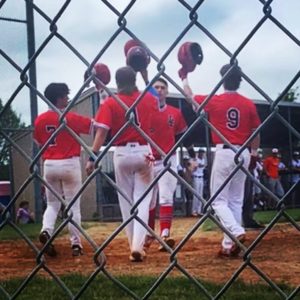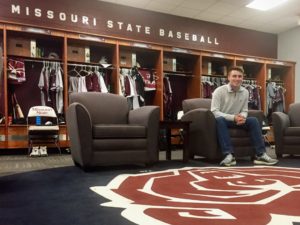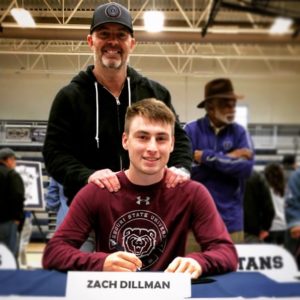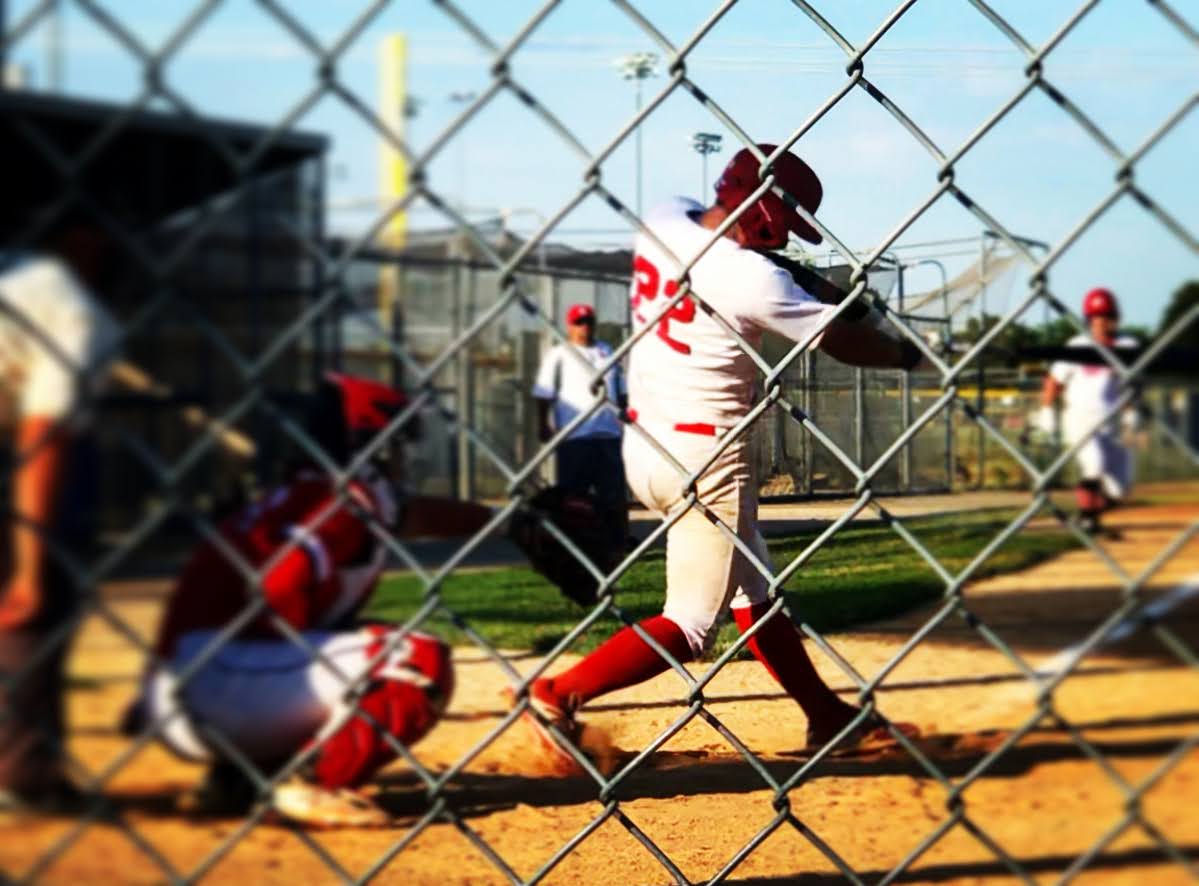Zach Dillman, a 2020 Lee’s Summit West graduate, has an interesting recruiting story. After failing to make the high school baseball team during his Sophomore year, a little over a year later he accepted an offer to play D1 baseball at Missouri State University. We sat down with Zach to talk about his high school experience, recruiting, and what playing at Inside Edge has meant to him.

I read the Titan Scroll article, From Cut To DI, that discussed your commitment to Missouri State. What can share with us about not making the high school team your Sophomore season and then receiving an offer from a D1 baseball program?
It’s been so long, I’ve mostly forgotten about being cut. I’ve definitely had more exciting things to focus on. But, I can say that I was devastated the day cuts happened. I went into tryouts with pretty high expectations. I had a great freshman season at West and the following summer with Inside Edge. I trained really hard that winter with Bob Zimmerman for pitching and Casey Shaw for hitting, and I was more prepared for tryouts than I was the previous year. Once tryouts came around, I felt like I played good baseball. But on the last day of tryouts, Coach called me in and told me that I didn’t make the team.
What I learned is tryouts aren’t always about what you bring; it’s also a matter of filling a need. And, considering the level of talent at West, there weren’t a lot of open positions that year.
How did you deal with the news?
I love playing baseball and really wanted to play for West, so it was a solid gut punch. When I talked with my dad about it, he told me that making the team was out of my control and recommended that I focus on what I can control. He also told me that how I chose to respond would determine what kind of person I was. I thought about our talk and decided I wasn’t going to let that setback derail my goals. I made a plan that included playing spring baseball with Rod Meyer at KC Elite. While I wasn’t with my classmates, playing with the KC Elite spring team gave me the chance to get game reps and to prepare for the upcoming summer season.
I also had a lot of support from Coach Clausen, Bob Zimmerman, and Casey Shaw. Having their support was a huge help. They each told me pretty much “So what. You got cut. Now, get to work.” While I didn’t want to hear it at the time, that was the best message I could have been given. Those guys gave me perspective and pushed me to keep working.
That’s such an important message. Learning to deal with adversity is critical to player development. It’s important to have coaches who help you work through those lessons. On a related aspect, did not making the team that year impact your recruiting?
It did a little. All of the schools I was talking with asked what happened that season. One school, in particular, was very blunt and told me that my performance on the field didn’t match that outcome. They wanted to know if I had trouble at school or if I was a bad character. Neither of those is a problem for me, and fortunately, my freshman coach and the JV coach offered to be a reference for me, so I had all the schools contact them. I also asked them to call Coach Clausen. Having those coaches speak for me really helped.

So fast-forwarding, what can you tell us about the recruiting process with Missouri State? When did they first see you and what conversations did you have with them?
Coach Guttin and his staff first saw me in January of my junior year. I pitched at the Premier College Showcase that year and had a really good outing. I didn’t hear from them until the fall of my senior year after I attended the MO State team camp that September. Coach Guttin called me two days after the camp to let me know that they like what they saw and asked if I’d be interested in coming for a visit. I went to Springfield a few weeks later and was blown away by what I saw–the facilities are some of the best in the midwest! What really got me was the sincerity of the coaches and their approach to player development.
Coach Guttin extended my offer during the visit, and I accepted it before we left that afternoon.
Based on your recruiting experience, what advice would you give to an IE player?
I think there are 2 points: recruiting is a long process and you have to find the right fit, not just athletically but also academically and socially.
I don’t remember how many times I reached out to Missouri State, but it was more than a few times. I sent an email to introduce myself, and then I followed up with messages to share my game schedules and major updates. I didn’t hear back from them until the week before the fall camp. I sent an email that week to let them know I would be there and they responded to that one. So, don’t get frustrated…just keep grinding.
Finding the right fit takes a lot of work, too. I talked to several coaches, went to a lot of team camps, and visited several schools. Every contact seemed like the right fit when I was there. When I sat down afterward and really thought about it, I always seemed to find a concern–the school was in a small town, the weather was too cold (I love hot weather!), or the facilities weren’t what I wanted. When I went to Missouri State, I looked at everything and didn’t find any concerns; I knew it was the right place for me.
That’s great advice. Recruiting isn’t a simple process and it’s important to appreciate every opportunity to put on a uniform and play in front of college coaches. Camps give players one-on-one access to coaches that isn’t possible in a tournament or showcase game.
You had an experience your Junior year that makes for a good story. That year, you decided to move from IE to another team. What can you share about that experience?
After my sophomore season, another academy reached out with an offer to play on their top travel team. At first, I wasn’t interested in making a change. I got pretty excited when they shared that the team played all over the country, including plans to play in the Perfect Game 17u WWBA, and that this team had three nationally ranked pitchers. I accepted the offer because I thought it would help to get out and play in front of more recruiters and scouts. And, for the most part, it did. Several schools contacted me during the season. The only problem was most of the schools were in areas that I had no interest in going to college. While I had fun, I realized that traveling 5 or 6 days a week didn’t really work for me and my family.
When the season ended, I reached out to Coach Clausen and asked if he had a spot for me. Fortunately, he did and I’m excited to be part of IE again.

We’re excited to have you back. Which, in closing, what has it meant to you to play at Inside Edge?
There’s so much I could talk about–teammates, the facilities, the level of instruction; but after playing here for four seasons, the personal connections with Todd and Sly are what really stand out for me. I know that Todd truly cares about his players and wants what is best for them. I remember his response when I told him I was moving to a different team. He told me that he wanted what was best for me and supported me no matter where I chose to play. Then, when I asked him about coming back, he didn’t hesitate to offer me a spot on the roster.
Having the opportunity to sit in the dugout with Coach Silvestri has been an unbelievable experience. He knows so much about baseball and is eager to share it with every player. He has really helped me sharpen my mental game. Working with him is the best thing I could do to prepare for college.
This may be my last season playing with Inside Edge, but I know that I have two resources who I will call on for support and advice.
